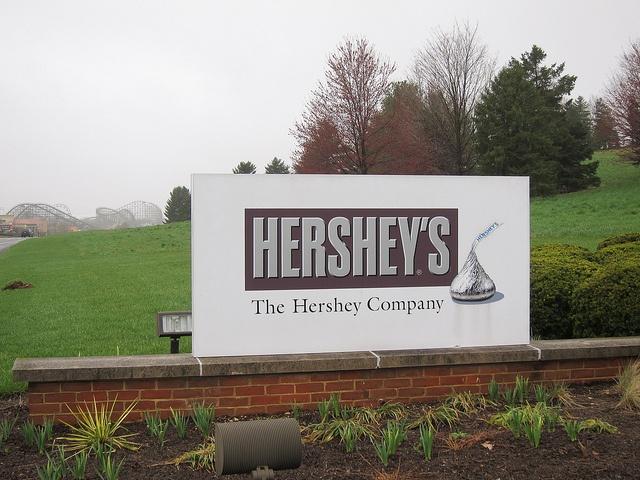
Hershey is confronting a bevy of problems as consumers seek snacks and foods that are more healthful and responsibly produced — and when they seek an indulgence such as chocolate, they want it to have depth and flavor. The company has suffered recent trends that include the drifting of consumers away from sugary foods, disappointing sales in China and volatility in global commodity markets.
The Pennsylvania-based confectioner has also long been dogged by accusations that its supply chain overlooks environmental degradation and human rights abuses. Alleged violations related to child labor, and even slavery, in Hershey’s supply chain convinced Whole Foods to stop carrying its popular Scharffen Berger brand of chocolates a few years ago. But in recent years, Hershey pledged to shift toward more responsibly-sourced ingredients. The company’s most recent corporate social responsibility report insists that it is ramping up those efforts worldwide.
More action needed on cacao
Despite recent acquisitions, such Krave Jerkey, which are an attempt to diversify the company’s portfolio, chocolate is still Hershey’s core business. So, the candy and snack giant needs to become more serious about sourcing more responsible cacao for its products. The challenge, as Marc Gunther pointed out last year on the Guardian, is to demonstrate that its cacao purchases actually provide a better standard living for farmers — the core driver behind the fair trade movement. The $7.3 billion company, however, has long been silent when it comes to how much cacao it buys through certification bodies such as Fair Trade USA and Rainforest Alliance.
Hershey’s silence, however, still rings loudly for those stakeholders who seek more transparency from the company. As is the case with many companies who tout the magic year 2020, Hershey promises it will buy 100 percent responsible and sustainable cacao by the end of that year, and boasts it is ahead of schedule of that goal by having already met it halfway. Hershey also showcases a program that it says helped 31,000 farmers in nations such as Cote d'Ivoire, Ghana and Nigeria, without divulging how -- while saying they are learning “information on best practices in sustainable cacao farming.” Such a vague disclosure is not going to mollify critics who have long said the global chocolate industry is one that provides indulgences for wealthy citizens at the expense of some of the world’s poorest people.
More progress on palm oil
When it comes to palm oil, Hershey arguably makes a stronger case about its sustainability street cred. The company is a member of the Roundtable on Sustainable Palm Oil (RSPO) and says it is striving to trace the source of this ingredient down to the plantation level.
As of last year, only 10 percent of Hershey’s palm oil was traced to the exact extraction point; this year the company promises 100 percent traceability on that front. With a new mapping tool released this week by Global Forest Watch, that task should be far more seamless for Hershey and its competitors.
Animal rights in the supply chain
Hershey’s animal rights record has attracted criticism over the years, but the company maintains it has a rigorous animal welfare policy. But it does not require its suppliers to follow its guidelines; instead U.S. suppliers are advised against excessive use of antibiotics, the use of growth hormones and cruel slaughtering practices. Following the trend of many other large food processing companies, Hershey says it will switch entirely to cage-free eggs by 2020.
Is this report a roadmap toward becoming a more sustainable company or a public-relations tome? The 88-page report is a little of both. But as companies such as Unilever have learned, Hershey is one wayward supplier away from a massive headache and dealing with the fury of livid stakeholders. For its reputation’s sake, it behooves the company to back up its flowing prose with concrete action.
Image credit: Scott Beale

Leon Kaye has written for 3p since 2010 and become executive editor in 2018. His previous work includes writing for the Guardian as well as other online and print publications. In addition, he's worked in sales executive roles within technology and financial research companies, as well as for a public relations firm, for which he consulted with one of the globe’s leading sustainability initiatives. Currently living in Central California, he’s traveled to 70-plus countries and has lived and worked in South Korea, the United Arab Emirates and Uruguay.
Leon’s an alum of Fresno State, the University of Maryland, Baltimore County and the University of Southern California's Marshall Business School. He enjoys traveling abroad as well as exploring California’s Central Coast and the Sierra Nevadas.














